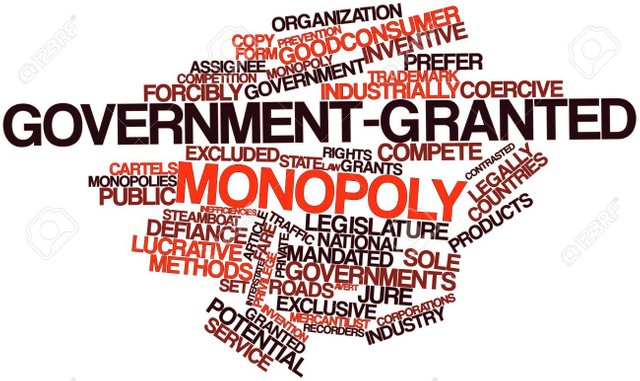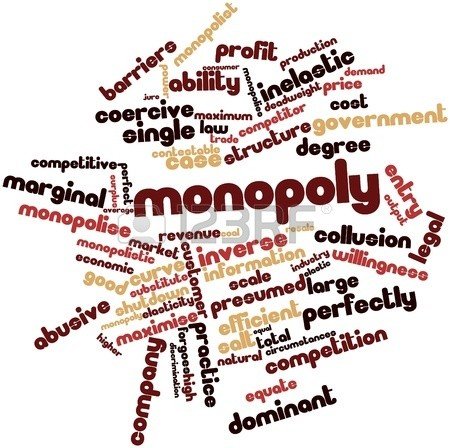Why ALL monopolies are bad.
So what is it about a monopoly that is bad? What detriment can it have on consumers? The questions can be answered by many economists. Most argue them as bad because it merely segregates a specific good or service from a competitive free market. While that may not seem bad to some, because of the known farce that public or centralized services remove profit incentive.
Incentives to give the best service and best price will always better thrive when business is subject to heavy competition. Its an honest examination of the way people trade, if one can be an exclusive producer of a good or service they have little care of what benefits those forced to use their service.
Monopoly could exist in a free market but i think it would be unlikely. In this case however the monopoly would still be subject to potential competition, which still is incentivising consumer satisfaction.
Heres Hans-Hermann Hoppe's views on monopoly which he elegantly explained.
1. "Every ‘monopoly’ is ‘bad’ from the viewpoint of consumers. Monopoly is here understood in its classic meaning as an exclusive privilege granted to a single producer of a commodity or service, or as the absence of ‘free entry’ into a particular line of production. Only one agency, A, may produce a given good or service, X. Such a monopoly is ‘bad’ for consumers, because, shielded from potential new entrants into a given area of production, the price of the product will be higher and its quality lower than otherwise, under free competition."
2. "The production of law and order, i.e., of security, is the primary function of the state (as just defined). Security is here understood in the wide sense adopted in the American Declaration of Independence: as the protection of life, property, and the pursuit of happiness from domestic violence (crime) as well as external (foreign) aggression (war). Both propositions are apparently incompatible with each other. This has rarely caused concern among philosophers and economists, however, and in so far as it has, the typical reaction has been one of taking exception to the first proposition rather than the second. Yet there exist fundamental theoretical reasons (and mountains of empirical evidence) that it is indeed the second proposition that is in error."



